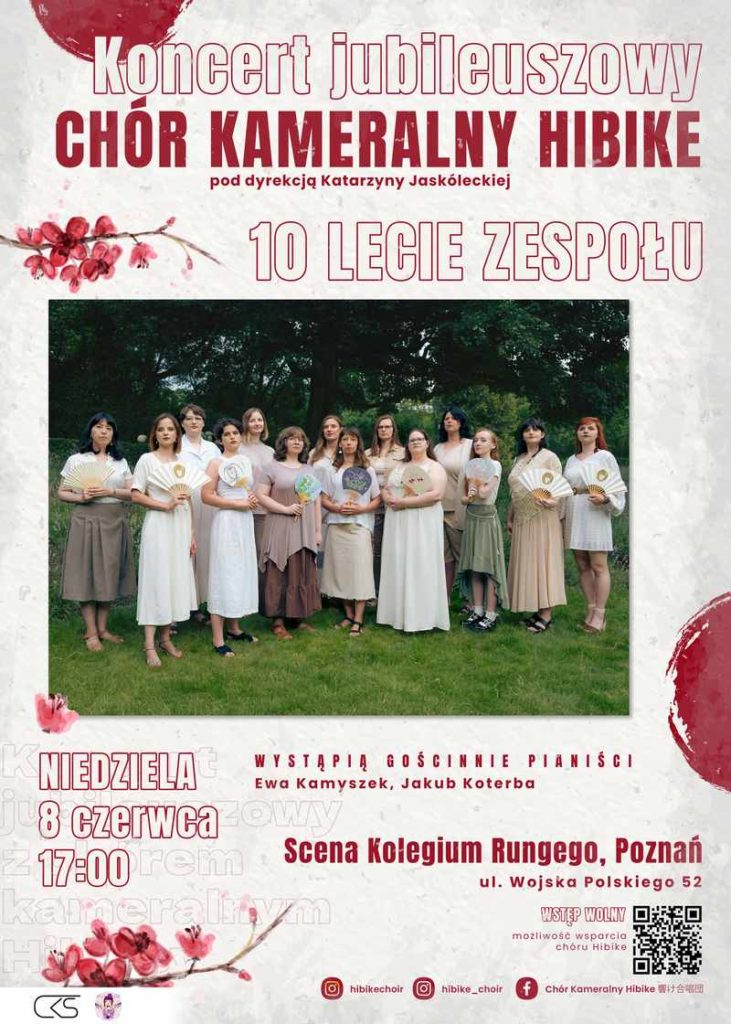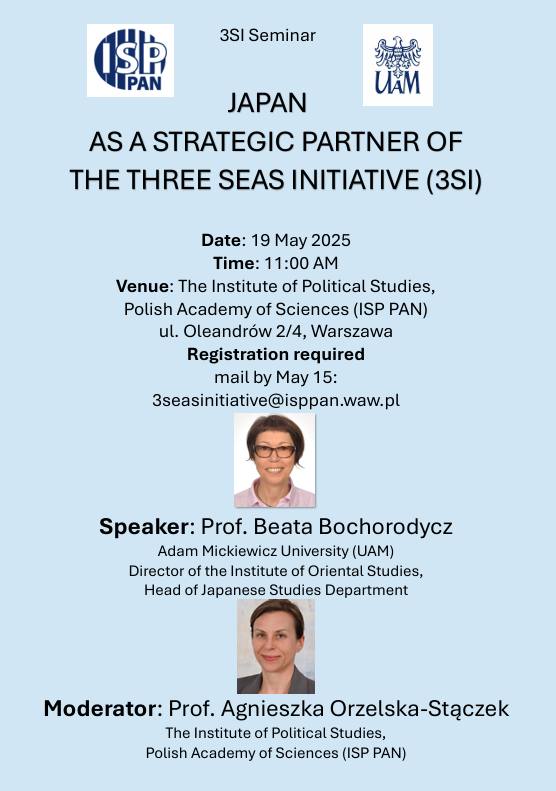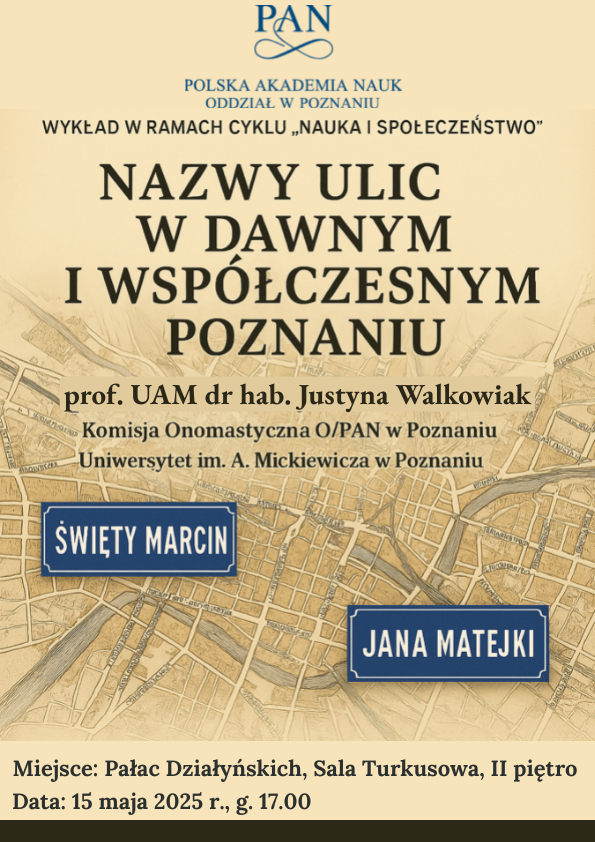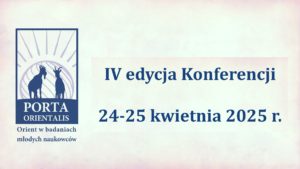Mamy przyjemność zaprezentować czwarte wydanie „Biuletynu Naukowego” Koła Sinologów Zhongguo (众果). Przedstawione w niniejszej publikacji artykuły zostały w całości opracowane przez studentów Zakładu Sinologii Uniwersytetu im. Adama Mickiewicza w Poznaniu w trakcie roku akademickiego 2024/2025, pod merytorycznym nadzorem i korektą opiekunki koła dr Marii Kurpaskiej.
Kategoria: Publikacja
Terminarz Dnia Studenta I Roku 2025/2026
Uprzejmie informujemy, że spotkania w ramach Dnia Studenta I roku odbędą się 30 września 2025 w Collegium Heliodori przy ulicy Grunwaldzkiej 6 (od wejścia głównego schodkami w dół i w lewo – kierować się czerwonymi lampionami, za windą w prawo – do smoka) wg poniższego harmonogramu:
-
- 9:00-10:00 AULA UAM: oficjalna uroczystość Dnia Studenta I roku
-
- 10:30-12:00 – Collegium Heliodori, s. 801 – SINOLOGIA – wspólnie
Następnie spotkanie z opiekunami lat:
Sinologia studia licencjackie – s. 801
Sinologia studia magisterskie – s. 800 - 10:30-12:00 – Collegium Heliodori, s. 803 – JAPONISTYKA studia dzienne – wspólnie
Następnie spotkanie z opiekunami lat:
Japonistyka studia licencjackie – s. 803
Japonistyka studia magisterskie – s. 802 - 12:30-14:00 – Collegium Heliodori, s. 803 – JAPONISTYKA studia wieczorowe licencjackie
- 12:30-14:00 – Collegium Heliodori, s. 801 – FILOLOGIA ARABSKA i TURKOLOGIA – wspólnie
Następnie spotkanie z opiekunami lat:
Filologia arabska studia licencjackie – s. 801
Filologia arabska studia magisterskie – s. 802
Turkologia studia licencjackie – s. 800
- 10:30-12:00 – Collegium Heliodori, s. 801 – SINOLOGIA – wspólnie
SALA-39 = South Asian Languages Analysis Round Table – 29.9-1.10.2025
SALA-39
South Asian Languages Analysis Round Table

Invited Speakers:
Koncert jubileuszowy z okazji 10-lecia zespołu
W imieniu chórzystek Chóru Kameralnego Hibike i dyrygentki, mamy przyjemność zaprosić na koncert jubileuszowy z okazji 10-lecia zespołu.
Koncert odbędzie się w Poznaniu 8 czerwca o godz. 17:00 na Scenie Kolegium Rungego ul. Wojska Polskiego 52. Wstęp na wydarzenie jest darmowy.

publiczna obrona rozprawy doktorskiej mgr Wenmin Hu
Tytuł rozprawy: Sociolinguistic Dynamics of Yulinese: Usage, Attitudes, and Influencing Factors – A Comprehensive Statistical and Thematic Analysis
Promotor rozprawy: prof. UAM dr hab. Tomasz Wicherkiewicz
Promotorka pomocnicza rozprawy: dr Maria Kurpaska
Tekst pracy jest dostępny w repozytorium AMUR (http://repozytorium.amu.edu.pl).
Przyziemne rozmowy
Koło Sinologów Zhongguo „众果” z radością przedstawia pierwszy z cyklu pięciu wywiadów przeprowadzonych z wykładowcami kierunku sinologia na Uniwersytecie im. Adama Mickiewicza. Cykl nosi nazwę „Przyziemne rozmowy”, a wywiady wchodzące w jego skład były przeprowadzane w maju oraz czerwcu roku akademickiego 2023/2024. W wywiadach głos zabrali wszyscy polscy wykładowcy poznańskiej sinologii. Tematyka wywiadów obejmuje różne aspekty, od kariery akademickiej po pozasinologiczne zainteresowania naszych gości. Wywiady będą ukazywały się na stronie internetowej Instytutu Orientalistki, w planach jest również wypuszczenie małego nakładu kopii fizycznych.
ZAPRASZAMY DO LEKTURY
Przyziemnie rozmowy – rozmowa z prof. dr hab. Izabellą Łabędzką
Zapraszamy na wykład prof. Beaty Bochorodycz w ISP PAN

Zapraszamy na wykład prof. UAM Justyny Walkowiak

życzenia wielkanocne
On the occasion of the upcoming Easter holidays, we wish you peace, joy and rest with your loved ones. May this time fill your hearts with hope and may the spring aura bring new strength and inspiration for action.
II. tom pokonferencyjny „Porta Orientalis. Orient w badaniach młodych naukowców”
Z radością informujemy, że właśnie ukazał się tom pokonferencyjny II edycji Porta Orientalis. Orient w badaniach młodych naukowców pod red. drów Filipa Jakubowskiego i Emilii Wojtasik-Dziekan
Całość w otwartym dostępie: na stronie wydawnictwa RYS
Kolejna = IV. edycja konferencji już 24-25 kwietnia 2025 r. w Poznaniu – zapraszamy!
